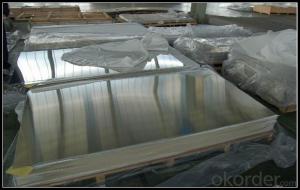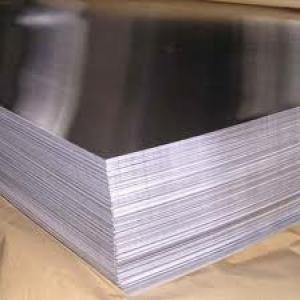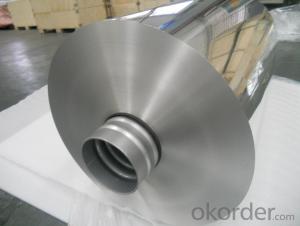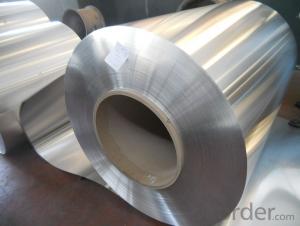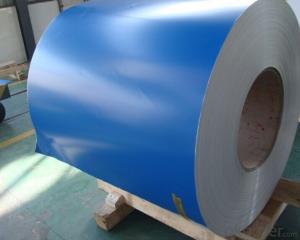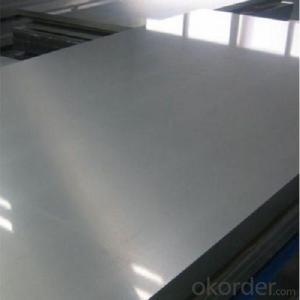Mill Finished Aluminium Sheet for Building Curtain Wall
- Loading Port:
- Shanghai
- Payment Terms:
- TT OR LC
- Min Order Qty:
- 5 m.t.
- Supply Capability:
- 10000 m.t./month
OKorder Service Pledge
OKorder Financial Service
You Might Also Like
Item specifice
1. Specification of Mill Finished Aluminium Sheet for Building Curtain Wall
ALLOY | AA1050 AA1060 AA1070 AA1100 ETC AA3003 AA3004 AA3005 AA3104 AA3105 ETC AA5005 AA5052 AA5083 AA5754 ETC AA8011 AA8006 AA8079 ETC |
TEMPER | H14,H16,H18,H22,H24,H26,H32,O/F |
THICKNESS | ≥0.2MM |
WIDTH | 30mm-2100mm |
COIL WGT | 2Mt - 3Mt |
COIL ID | φ508mm,φ610mm |
SURFACE | PE Protecting film |
STANDARD | GB/T 3880-2006 |
2. Application of Mill Finished Aluminium Sheet for Building Curtain Wall
(1).Interior: wall cladding, ceilings, bathrooms, kitchens and balconies, shutters, doors...
(2).Exterior: wall cladding, facades, roofing, canopies, tunnels,column covers , renovations...
(3).Advertisement: display platforms, signboards, fascia, shop fronts...
3. Feature of Mill Finished Aluminium Sheet for Building Curtain Wall
Surfact Quality :
Be free from Oil Stain, Dent, Inclusion, Scratches, Stain, Oxide Dicoloration, Breaks, Corrosion, Roll Marks, Dirt Streaks and other defect which will interfere with use,
Mechenical Property:
Chemical Composite and Mechanical Property
4. Certificate:
SGS and ROHS(if client request, paid by client), MTC(plant provided), Certificate of Origin(FORM A, FORM E, CO), Bureau Veritas and SGS (if client request, paid by client), CIQS certificate
5. Image of Mill Finished Aluminium Sheet for Building Curtain Wall
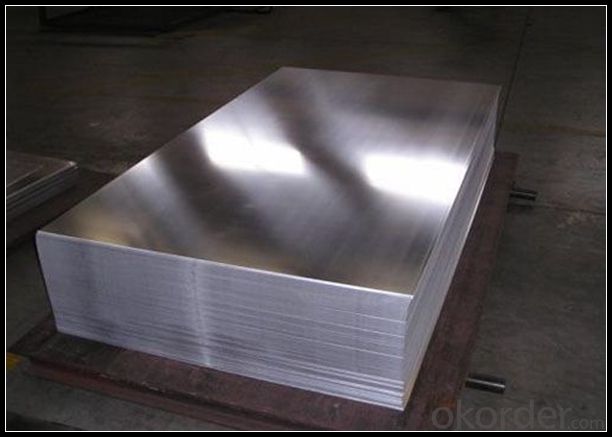
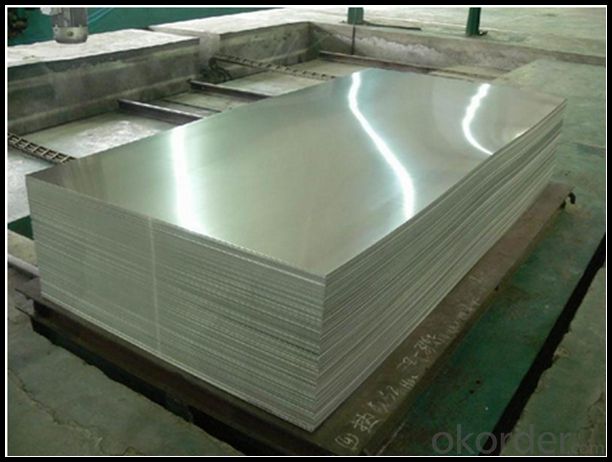
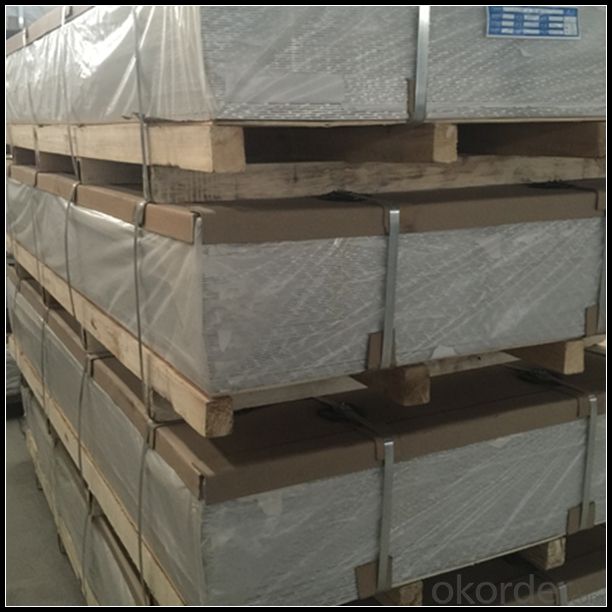
6. Package and shipping of Mill Finished Aluminium Sheet for Building Curtain Wall
First, plastic cloth with drying agent inside; Second, Pearl Wool ; Third, wooden cases with dry agent , fumigation wooden pallets, aluminum surface could cover blue PVC film
7. FAQ
1) What is the delivery time?
Dpends on actual order, around 20 to 35 days
2)What is the QC system:
We have QC staff of 20 persons and advanced equipment, each production is with MTC traced from Aluminum ingot lot.
3) What market do you mainly sell to?
Australia, America, Asia, Middle East, Western Europe, Africa etc
- Q:How do aluminum plates open holes?
- Aluminum plastic panels will not crack, this material is not so brittle glass?
- Q:Can aluminum sheets be welded?
- Yes, aluminum sheets can be welded. Aluminum is a versatile material that can be easily welded using various welding techniques such as Tungsten Inert Gas (TIG) welding, Metal Inert Gas (MIG) welding, and Gas Metal Arc Welding (GMAW). However, welding aluminum requires special considerations compared to other metals due to its unique properties. Aluminum has a low melting point and high thermal conductivity, which means that it requires a higher heat input and faster welding speed compared to other metals. Additionally, aluminum oxide can form quickly on the surface, making it necessary to remove this oxide layer before welding. Specialized welding techniques, such as using alternating current in TIG welding or using a spool gun in MIG welding, are often employed to ensure proper weld quality. Overall, with the right techniques and equipment, aluminum sheets can be successfully welded, making it a popular choice in various industries such as automotive, aerospace, and construction.
- Q:Could you tell me the difference between the 6063 aluminum plate and the 5052 aluminum plate?
- The difference is that, in addition to the magnesium Mg element, there is also a silicon Si element in the 6063 aluminum plate. The strength is slightly better than that of 5052
- Q:Are 101 aluminum sheets suitable for heat sinks?
- Yes, 101 aluminum sheets are suitable for heat sinks.
- Q:How do you determine the thickness tolerance of an aluminum sheet?
- One way to determine the thickness tolerance of an aluminum sheet is by referring to the industry standards or specifications for aluminum sheet thicknesses. These standards outline the acceptable range of thickness variations and provide tolerance values. Additionally, using precision measuring tools such as micrometers or calipers, you can directly measure the thickness at various points on the sheet and compare it to the specified tolerance range to determine if it meets the required thickness tolerance.
- Q:What are the common sizes of aluminum sheet?
- Common sizes of aluminum sheets vary depending on the specific requirements and industry applications. However, some standard sizes are commonly available in the market. These sizes typically range from 0.025 inches to 0.125 inches in thickness and can come in various widths and lengths. Some common width options include 36 inches, 48 inches, and 60 inches, while the length can range from 96 inches to 144 inches. Additionally, aluminum sheets can also be found in smaller sizes, such as 12 inches by 24 inches or 24 inches by 24 inches, which are often used for smaller projects or crafts. It is important to note that custom sizes can also be obtained through specialized aluminum sheet suppliers.
- Q:Are aluminum sheets suitable for chemical processing applications?
- Aluminum sheets are a great choice for chemical processing applications. They are widely used in various industries, including chemical processing, due to their versatility. One of the reasons aluminum is preferred is because it has excellent corrosion resistance properties. This makes it ideal for applications that involve exposure to chemicals and corrosive environments. Aluminum sheets can resist many acids and alkalis, including common chemicals like sulfuric acid, hydrochloric acid, and sodium hydroxide. The reason aluminum is so resistant to corrosion is because of the thin oxide layer that forms on its surface. This layer acts as a barrier against chemical attacks and can quickly reform if damaged, providing continuous protection to the metal underneath. Additionally, aluminum is lightweight, has high thermal conductivity, and can be easily shaped and sized, making it a popular choice for chemical processing equipment and components. In chemical processing applications, aluminum sheets are often used for storage tanks, heat exchangers, piping systems, and other equipment that comes into contact with chemicals. They can withstand high temperatures and pressures, making them suitable for various processing conditions. Furthermore, aluminum is non-toxic, non-magnetic, and has excellent electrical conductivity, which can be advantageous in certain chemical processes. However, it's important to consider the specific chemical environment and conditions when choosing aluminum sheets for chemical processing applications. Some aggressive chemicals, like strong bases or highly oxidizing acids, may require additional protection or alternative materials. It's recommended to consult with experts or engineers who are familiar with the specific chemical processes and conditions to ensure that aluminum sheets are suitable for a particular application.
- Q:Can aluminum sheets be used for reflective insulation?
- Yes, aluminum sheets can be used for reflective insulation. Aluminum is highly reflective and has good thermal conductivity, making it an excellent choice for reflecting heat and reducing heat transfer. When used as insulation, aluminum sheets can reflect heat away from the surface, preventing it from entering or escaping the desired area. This can help in maintaining a comfortable temperature inside a building or protecting sensitive equipment from extreme heat or cold. Additionally, aluminum sheets are lightweight and easy to install, making them a popular choice for reflective insulation applications.
- Q:Are the aluminum sheets suitable for manufacturing electronics components?
- Yes, aluminum sheets are suitable for manufacturing electronics components. Aluminum is a lightweight, durable, and cost-effective material that is widely used in the electronics industry. It has excellent electrical conductivity, which is essential for the proper functioning of electronic devices. Aluminum sheets can be easily shaped, cut, and formed into various components such as heat sinks, enclosures, and connectors. Additionally, aluminum has good thermal conductivity, allowing it to effectively dissipate heat generated by electronic components. This makes aluminum sheets an ideal choice for manufacturing electronics components.
- Q:The difference between aluminum plate and aluminum plate
- Aluminum row is aluminum profile! Cheapness! The manufacturing process is different. The performance of aluminum plate will be higher! I hope you can adopt it! Is there anything you'd like to inquire about?!The data from Suzhou Juteng Metal Technology Department
1. Manufacturer Overview |
|
|---|---|
| Location | |
| Year Established | |
| Annual Output Value | |
| Main Markets | |
| Company Certifications | |
2. Manufacturer Certificates |
|
|---|---|
| a) Certification Name | |
| Range | |
| Reference | |
| Validity Period | |
3. Manufacturer Capability |
|
|---|---|
| a)Trade Capacity | |
| Nearest Port | |
| Export Percentage | |
| No.of Employees in Trade Department | |
| Language Spoken: | |
| b)Factory Information | |
| Factory Size: | |
| No. of Production Lines | |
| Contract Manufacturing | |
| Product Price Range | |
Send your message to us
Mill Finished Aluminium Sheet for Building Curtain Wall
- Loading Port:
- Shanghai
- Payment Terms:
- TT OR LC
- Min Order Qty:
- 5 m.t.
- Supply Capability:
- 10000 m.t./month
OKorder Service Pledge
OKorder Financial Service
Similar products
New products
Hot products
Related keywords
